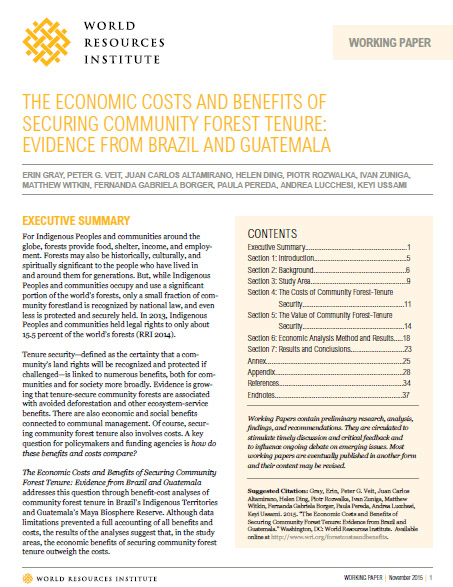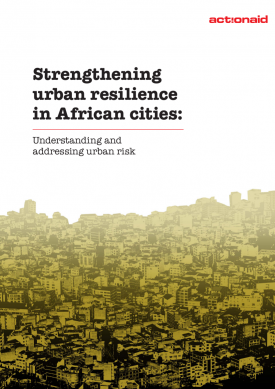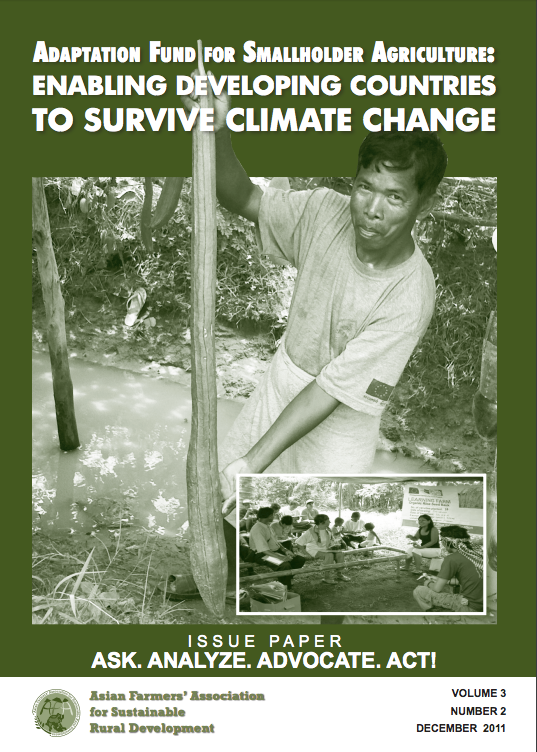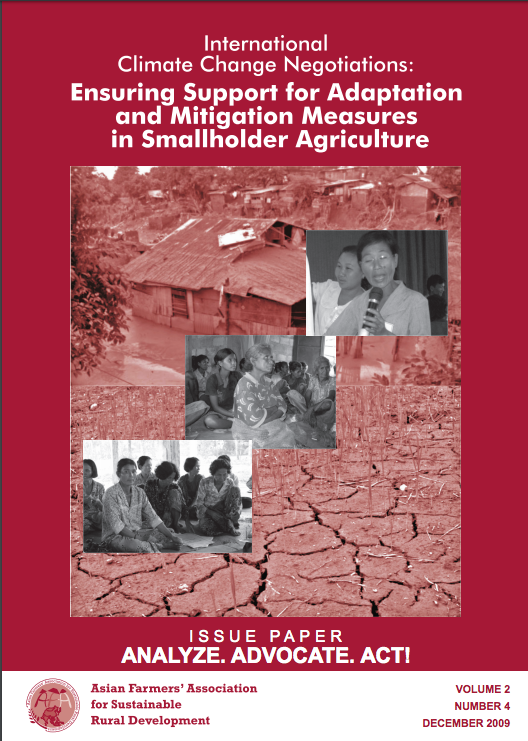climate change
AGROVOC URI: http://aims.fao.org/aos/agrovoc/c_1666
2012 Global food policy report: Overview
This 2012 Global Food Policy Report is the second in an annual series that provides an in-depth look at major food policy developments and events. Initiated in response to resurgent interest in food security, the series offers a yearly overview of the food policy developments that have contributed to or hindered progress in food and nutrition security. It reviews what happened in food policy and why, examines key challenges and opportunities, shares new evidence and knowledge, and highlights emerging issues.
Agriculture and climate change: Direct and indirect mitigation through tree and soil management
Many opportunities exist for mitigating greenhouse gas (GHG) emissions through better management of trees and soils. There is potential for both direct mitigation through better management of carbon in agricultural landscapes and indirect mitigation through reduced pressure on carbon stored in forests, peatlands, and wetlands. Effectively harnessing these opportunities will take bold action in climate change negotiations.
The Economic Costs and Benefits of Securing Community Forest Tenure: Evidence From Brazil and Guatemala
Evidence is growing that tenure-secure community forests are associated with avoided deforestation and other ecosystem-service benefits. There are also economic and social benefits connected to communal management. But securing community forest tenure also involves costs, including costs to establish supportive legislation, to demarcate and register the lands, to monitor and protect the lands as well as opportunity costs.
Strengthening urban resilience in African cities: Understanding and addressing urban risk
Author: Robyn Pharoah/ActionAid
The population of Africa’s cities is growing rapidly. But as poor people cram into towns and cities characterised by limited, weak and often under-resourced infrastructure, they are increasingly relegated to marginal, inadequately serviced, informal settlements and low-cost housing areas, leaving them vulnerable to numerous livelihood, health and security risks.
Azerbaijan: Systematic Country Diagnostic
Azerbaijan’s performance on the twin
goals has been commendable. The middle class has doubled in
size and extreme poverty has almost been eliminated in the
space of a decade. At the same time, regional differences
persist, with significantly higher poverty rates in lagging
regions, and Baku dominating overwhelmingly in terms of
share of GDP. Disparities in welfare also persist between
rural and urban areas as well as across social groups. As
Reducing the Vulnerability of Azerbaijan's Agricultural Systems to Climate Change : Impact Assessment and Adaptation Options
In countries such as Azerbaijan, the
risks of climate change for the agricultural sector are a
particularly immediate and important problem because the
majority of the rural population depends either directly or
indirectly on agriculture for their livelihoods. The need to
adapt to climate change in all sectors is now on the agenda
of the countries and development partners. International
efforts to limit greenhouse gases and to mitigate climate
Greening India's Growth
India’s sustained and rapid economic
growth offers an opportunity to lift millions out of
poverty. But this may come at a steep cost to the nation’s
environment and natural resources. This insightful book
analyzes India’s growth from an economic perspective and
assesses whether India can grow in a “green” and sustainable
manner. Three key issues are addressed. The first is the
Intensification of Livestock Production Systems in the North West Region of Cameroon : A South-to-South Collaboration for Technology Transfer, The Tugi Silvopastoral Project
The Tugi Silvo-pastoral Project (TUSIP)
is a South-South Cooperation between the Tropical
Agriculture Research and Higher Education Centre (CATIE)
based in Costa Rica (www.catie.ac.cr) and the Akwi Memorial
Foundation (AMF) based in the North West Region of Cameroon.
The main goal of TUSIP was to assess the environmental
benefits of a set of silvo-pastoral practices and to empower
Adaptation Fund for Smallholder Agriculture: Enabling Developing Countries to Survive Climate Change
All over Asia, small women and men farmers are experiencing extreme and intense weather events brought about by climate change. Almost all of them are caught unprepared by changing climate patterns: rains are heavier, storms and floods occur more often, dry seasons are more intense and last longer. They do not understand why this is happening. All they know is that they have to find a way to adapt to and survive these changes.
International Climate Change Negotiations: Ensuring Support for Adaptation and Mitigation Measures in Smallholder Agriculture
The issue of climate change was already being discussed in the 1980s as scientists raised alarm over the world's increasing emission of manmade green house gases (GHGs), the main cause of global warming. In 1988, the Intergovernmental Panel on Climate Change (IPCC), began to look into the effects of manmade GHG emissions on climate change. Following the release of the IPCC findings in 1990, the United Nations initiated the process of convening countries with the goal of reducing man-made GHG emissions and helping countries adapt to climate change.









